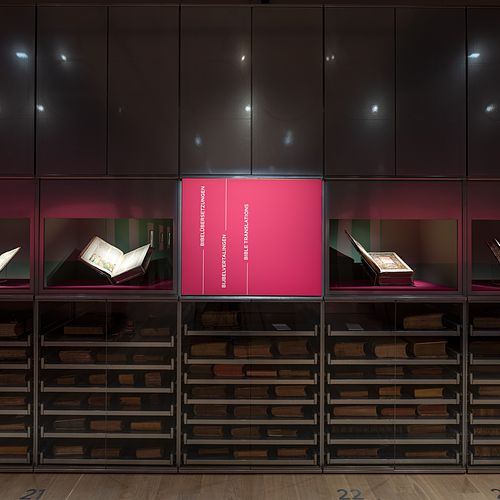AUDIO
Bible Translations II (Letterpress Printing and its Long-Term Impact)
In the fifteenth century, the practice of translating Bibles into vernacular languages took on a new dimension. The invention of letterpress printing by Johannes Gutenberg in the middle of the fifteenth century and the rising availability of paper played a particularly important role in allowing books to reach a wider audience much faster. These factors made it cheaper to produce books, and made it easier to publish many more books in a shorter time. The process of printing was much more efficient than copying manuscripts by hand. The new technology was naturally also very important for Christianity – and so it is no surprise that the first book ever printed was a Latin Bible.
Since books could now reach a larger market than manuscripts, the target audience also changed. More people could afford to buy a book, but not everyone could read Latin, which increased the demand for Bibles in the vernacular languages. The growing number of printed Bibles in vernacular languages in the second half of the fifteenth century underscores this.
The translated Bibles, however, were often difficult to read. In most cases, the Vulgate was translated word for word, which logically led to texts that were hard to understand.
In the German-speaking world, this changed with Martin Luther’s new translation of the Bible, which he published in 1522. Up to this point, eighteen German-language Bibles had already been printed in less than seventy years, but Luther’s was the first that was easy to comprehend.
People in other countries in northwestern Europe were also looking for an easily understandable standard Bible in their own native language. National governments played an increasingly important role in this process. At the beginning of the seventeenth century, therefore, state-approved editions of the Bible appeared, authorized for example in England by King James I, and in the Netherlands by the States General. Even today, people are still producing, supplementing, or altering Bible translations. Language is and remains alive, and the topic is still as relevant today as it was centuries ago.
